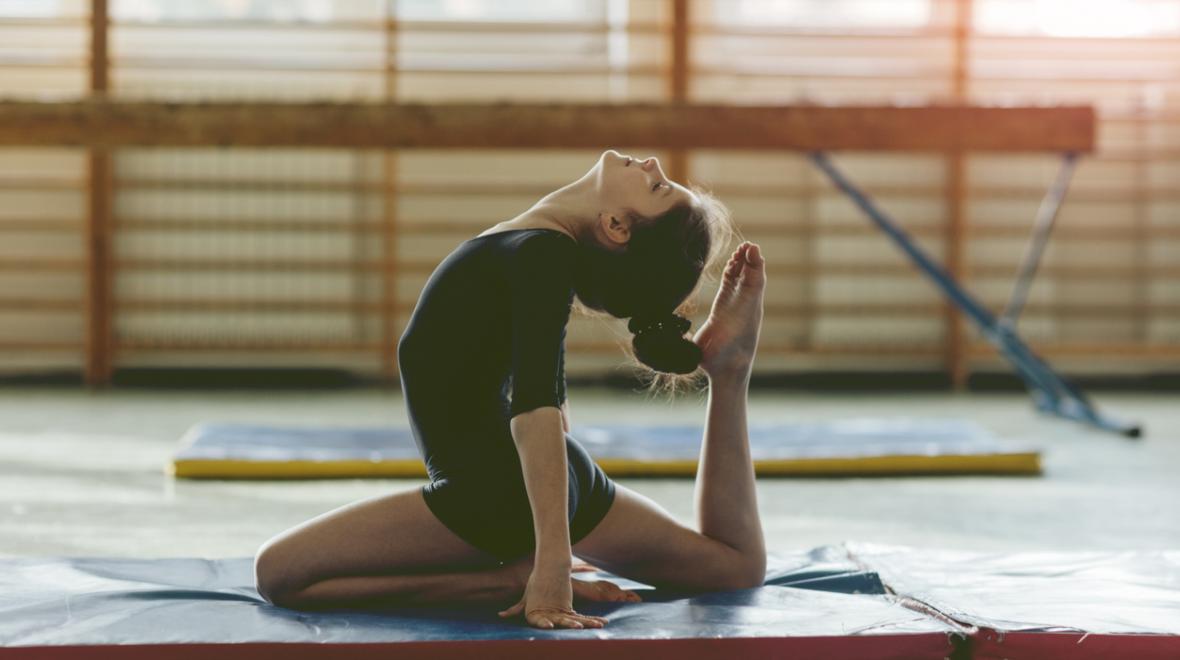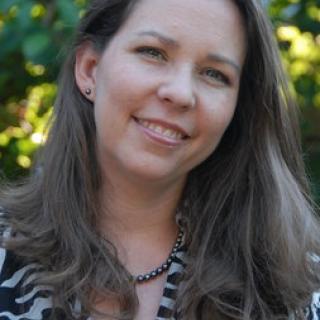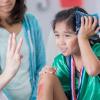
It’s one of the calls no parent ever wants to get.
I was sitting in a coffee shop at the mall. My older daughter and our two foreign exchange students were enjoying a shopping outing while my younger daughter was at gymnastics practice. I was writing an article on my laptop when the phone rang. It was the gym.
I picked up to hear a breathless coach tell me that my younger daughter had taken a bad fall from the uneven bars and had “at least” a broken arm. Our exchange students got a different kind of American experience as we hurtled down the highway in my minivan to get to the hospital.
The following hours were a blur. My daughter had shattered one arm and both dislocated and broken the other. She had emergency surgery that night. My husband and I were worried sick, but also couldn’t help being grateful that she didn’t injure her head or spine, like another local gymnast who had been paralyzed by a fall the year before.
When the news that Simone Biles had pulled out of the Olympics reverberated around the world, I was reminded of that anxious night in the hospital. Biles cited a “bad case of the twisties,” a term used by gymnasts to refer to getting lost in the air. It’s a mind-body disconnect that can happen due to fatigue and stress, mental or physical — and it can lead to injuries.
When my daughter fell, she was doing a level seven move she’d done hundreds of times before. She thinks, looking back, that it happened because she was tired and stressed. She lost herself in the air. The hours of gymnastics practice plus the pressures of school were wearing on her, and she hadn’t been sleeping well because she was anxious about her state-level competition, which was to take place the day after her accident.
Our family got nothing but support after her injury, and no one pushed her to go back to competition. Of course, unlike Biles, my daughter’s injury was physical, not mental. And our gymnast didn’t have the whole world watching and questioning her every move. But if her mental strain caused her physical injury, then isn’t mental health just as important as physical health?
Most of the public was supportive of Biles’s decision, but a few people seemed to think that she should have continued on, as when Kerri Strug vaulted on an injured foot at the 1996 Olympics. Some said that Biles' mental health wasn’t a valid reason for stepping back. Yet, as many elite gymnasts have pointed out, getting lost in the air doing skills at Biles’s level could result in falls that can result in devastating injuries, and even death.
What Biles did is much more important than winning.
What is sad is that Biles shouldn’t have had to explain herself. She is a human being, not a robot programmed to win medals for her country. The stress on elite athletes is immense and is intensified by social media and 24-hour news coverage. To perform at this high level requires intense concentration and being in the right headspace. Even the smallest distraction can detract from performance, whether the result is a dangerous fall or a low score.
My daughter healed well, and after a year off, she even went back to gymnastics — but she chose a much less intense version of competition called Xcel, which had fewer hours of practice and a much more relaxed vibe. It was hard for my husband and me to allow her to return to the gym, but it was her choice. She wanted to face her fears, and she missed the sport. But she didn’t want to get as stressed as she had been before, and with Xcel, gymnastics became fun again. After doing the Xcel program for a season, she left gymnastics for other activities.
My daughter learned an important lesson in the hardest way — of knowing when to stop.
What Biles did is much more important than winning: She showed the world that even the best of us need to take care of ourselves both mentally and physically. I hope that her act of courage will be the beginning of a new way of training athletes to know themselves better, in mind, body and spirit.











